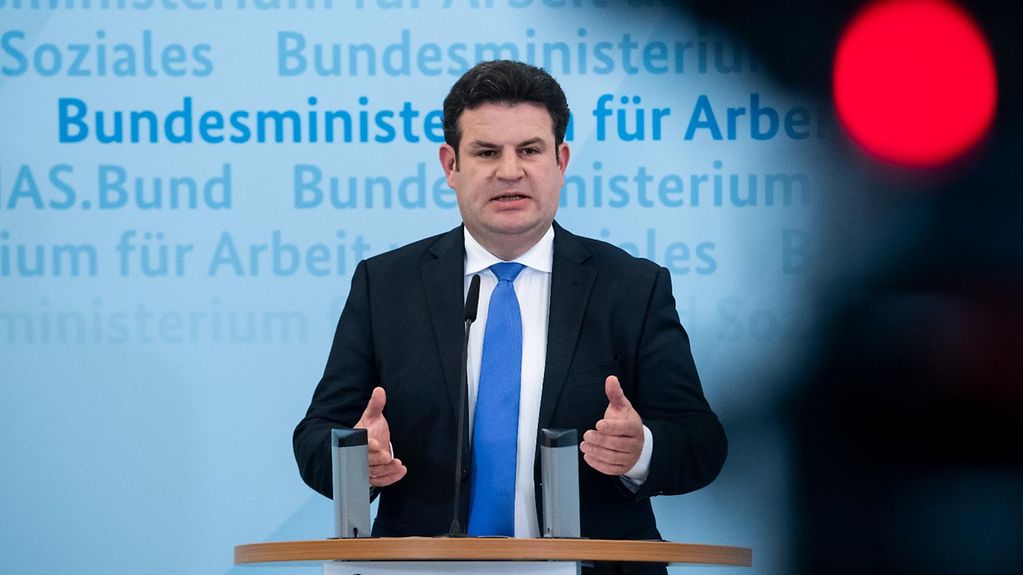Occupational safety programme adopted
The lack of occupational health and safety precautions in some companies in the meat sector has resulted in a spike in COVID-19 infections. Most of the affected workers come from Eastern European countries. The Cabinet has now adopted the main cornerstones of an occupational health and safety programme.
2 min reading time

Federal Labour and Social Affairs Minister Hubertus Heil declared, "Serious shortcomings must be swiftly and thoroughly remedied."
Photo: picture alliance/dpa/Bernd von Jutrczenka
There have been pockets of COVID-19 infections in several meat factories. "These infections are a threat to the infected workers. And they jeopardise the chance to ease restrictions in these districts, which we have together made possible. So they affect life in the affected regions," explained Federal Labour and Social Affairs Minister Hubertus Heil.
On Wednesday the Cabinet adopted the cornerstones of an occupational health and safety programme for the meat industry. Some of the provisions are listed below:
- Customs and occupational safety authorities as well as district regulatory authorities and health offices are to take additional steps to ensure compliance with occupational health and safety, infection prevention and health protection standards.
- As of 1 January 2021 butchering and processing of meat may only be performed by employees of the company itself. Contract workers and the leasing of temporary workers will no longer be permitted. Artisanal businesses will be exempted from this regulation.
- The level of fines imposed for contravention of the Working Time Act is to be doubled to 30,000 euros.
- The German government will also examine ways of obliging companies to ensure compliance with minimum standards in workers’ accommodation.
- The financial and legal basis of the Fair Mobility project is to be ensured on a permanent basis so that foreign workers are informed in their own language about their rights and about pertinent regulations in Germany.
Shortcomings to be remedied swiftly
Foreign workers play an important part in the meat industry. They need to be afforded special protection because most of them are only in Germany on a temporary basis, have at best limited German language skills at their disposal, and have no realistic chance of finding accommodation on the market.
In parts of the meat industry, serious shortcomings have been identified time and time again for many years in terms of working conditions and accommodation for workers. "These shortcomings make for conditions that cannot be described as decent working conditions and they are dangerous. We want to remedy them swiftly and thoroughly," said Federal Labour and Social Affairs Minister Hubertus Heil.